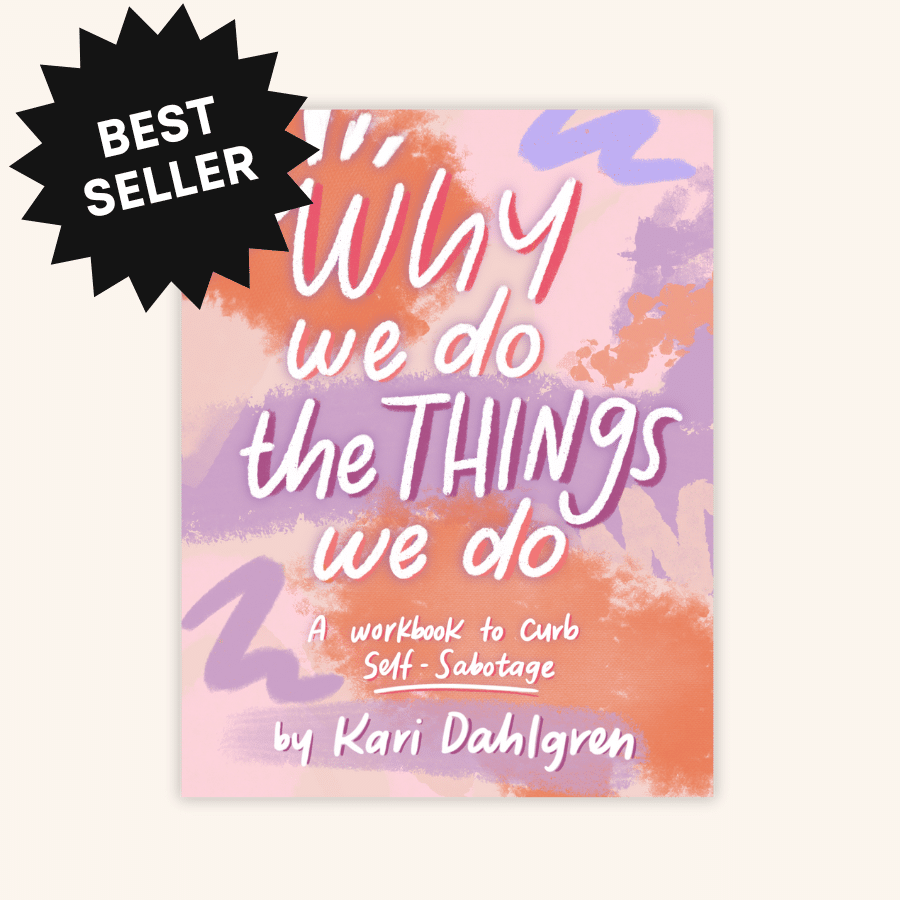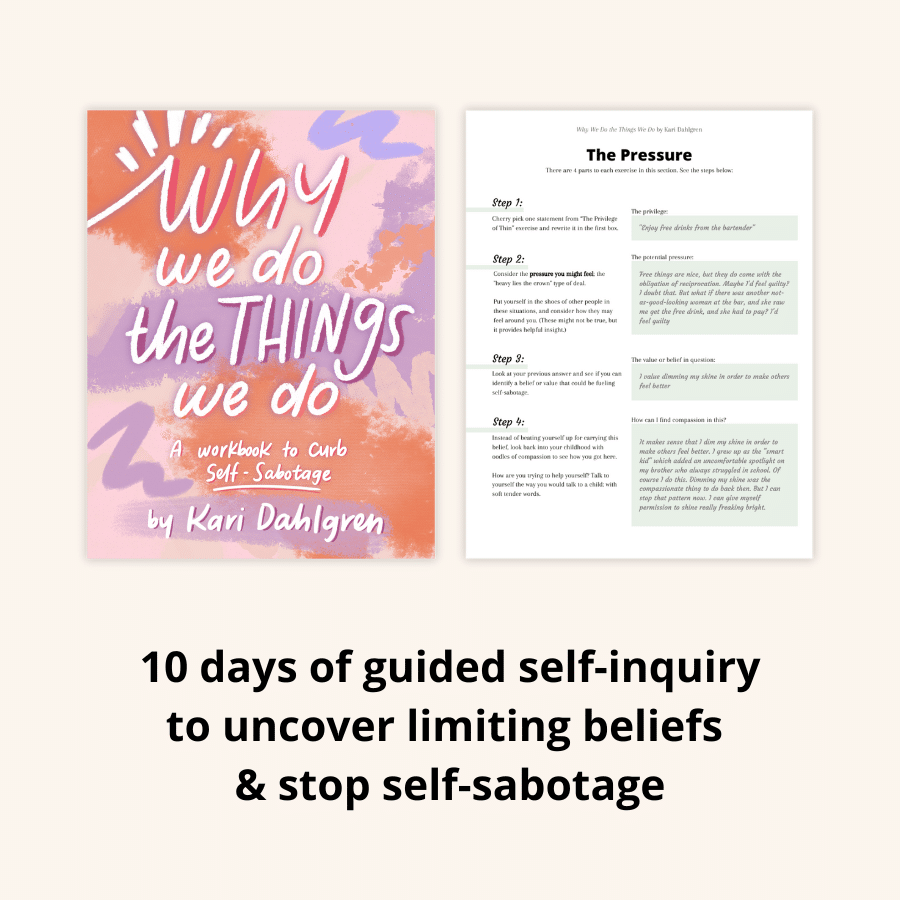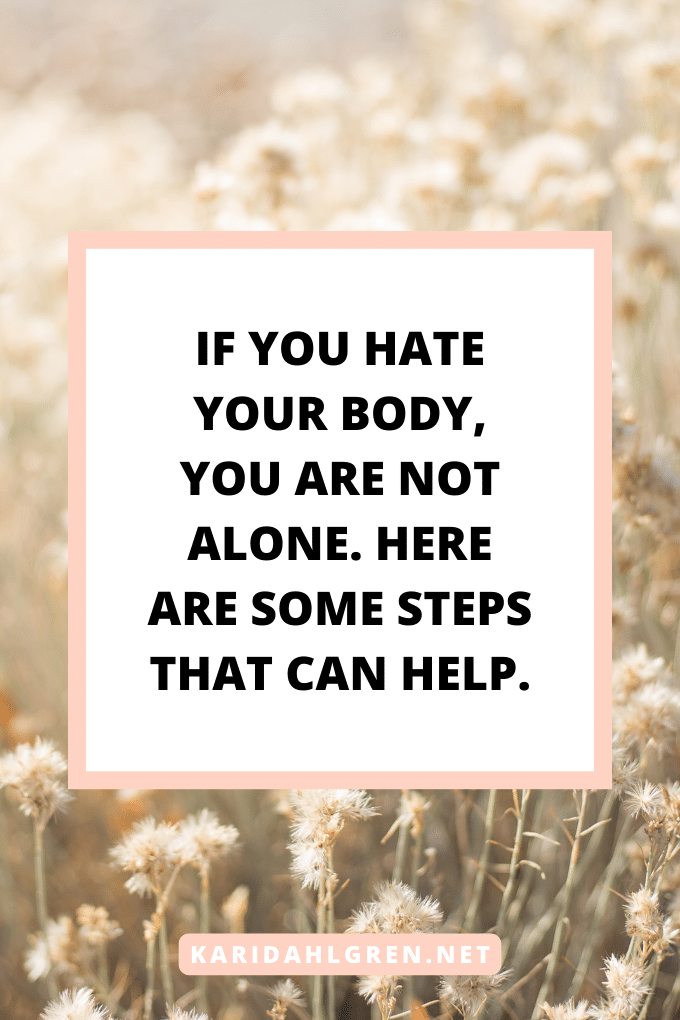
Back when my disordered eating was at its peak, I definitely struggled with thoughts like, “I hate my body.” I exhibited many symptoms of poor body image such as excessive use of makeup, avoiding going out into public, and of course, excessive dieting.
Self-loathing and thoughts like “I hate my body” are part of a vicious cycle of poor body image and maladaptive coping mechanisms. Many people attempt to heal their body image by losing weight through dieting, only to worsen their body image because diets don’t work.
If you find yourself stuck in patterns of self-loathing, this robust guide has plenty of resources to help heal your relationship with your body. First, I’ll share the symptoms and causes of poor body image—and they are exhaustive lists. My hope is that, by seeing how many factors play into poor body image, it helps you access self-compassion.
I’ll also share some statistics about poor body image to shine a light on how common this issue is, and I hope that helps you feel less alone. Finally, I’ll wrap this guide up with some evidence-based steps for healing your relationship with your body. It won’t be an overnight process, but I’ll be right here with you every step of the way.
The Definition & Prevalence of Poor Body Image
Body image encompasses your perceptions, thoughts, feelings, and attitudes towards your body. It’s a subjective picture of how you view yourself, which may or may not align with how your body actually appears.[1]
Body dysmorphia, also known as Body Dysmorphic Disorder (BDD), is a mental health condition characterized by an obsessive preoccupation with perceived flaws in one’s appearance, which are often minor or not observable to others. BDD is a type of obsessive-compulsive disorder (OCD) with overlap between BDD and OCD and distinct differences between the two.[2]
While poor body image involves general dissatisfaction with one’s body, body dysmorphia is more severe, involving persistent and intrusive thoughts that can significantly impair your daily life. If you or someone you know struggle with body dysmorphia, it’s critical to get help from a qualified mental health professional or therapist.
Prevalence of Poor Body Image
Poor body image is often characterized by a desire to change one’s body shape, often in regard to weight. One key aspect of poor body image is that it is not limited to individuals of a certain weight. People who are underweight, normal weight, or overweight can all experience negative body image.
For example, underweight individuals might desire to gain weight, while overweight individuals might wish to lose weight. Furthermore, a drive for thinness can also affect individuals with a “normal” weight, or Body Mass Index (BMI)—which, by the way, is an arbitrary metric that ineffectively underscores the relationship between weight and health.[3]
The prevalence and ubiquity of poor body image is reflected in various studies showing high levels of body image dissatisfaction across different populations:
- 75% of 1,019 adolescents were unsatisfied with their body image in a 2020 study.[4]
- 81% of 308 university students were dissatisfied with their body image in a 2019 study.[5]
- 83% of 75,256 postmenopausal women were dissatisfied with their bodies because they perceived themselves as heavier than ideal, according to a 2016 study.[6]
If you find yourself thinking “I hate my body,” you’re not alone. Body dissatisfaction is rampant among adolescents and adults alike. For a better understanding of how to overcome body-related self-loathing, let’s discuss the symptoms and causes of poor body image before we move onto much-needed healing.
Symptoms of Poor Body Image
For those who resonate with the statement ‘I hate my body,’ specific symptoms of negative body image are often at play. These markers can shed light on how body dissatisfaction arises and how body image can therefore be restored.
Here are common symptoms of poor body image:[7]
- Dissatisfaction with your body or specific body parts: A common sign of poor body image is feeling unhappy or discontent with one’s physical appearance or specific parts of the body.
- Preoccupation with appearance: Spending excessive time worrying about or focusing on one’s looks can indicate a negative body image.
- Eating disorders: Eating disorders, such as anorexia and bulimia, are common symptoms of poor body image, often manifesting as extreme and unhealthy behaviors in an attempt to conform to perceived body ideals.
- Disordered eating: Disordered eating refers to a range of irregular eating behaviors such as excessive dieting or eating in secret, for example, that may or may not warrant a diagnosis of a specific eating disorder. Disordered eating is associated with increased body shame and self-consciousness.[9]
- Frequent mirror checking: Engaging in excessive “body checking,” such as repeatedly scrutinizing one’s appearance in mirrors, can indicate a preoccupation with perceived flaws and contribute to negative body image.
- Frequent self-weighing: Regularly stepping on the scale may reflect an obsession with body weight.
- Avoidance of public situations: People with poor body image may avoid social interactions or public places due to feelings of self-consciousness or inadequacy.
- Self-critical language: Using negative language about oneself, such as “I hate my body” or “I feel fat,” is indicative of heightened self-criticism and negative body image.
- Comparing yourself to others: Frequently comparing one’s appearance to others, especially on social media, and wishing to look like someone else can signal poor body image.[9]
- Excessive use of makeup: Using makeup excessively to alter one’s appearance can be a sign of dissatisfaction with one’s natural looks.[10]
- Excessive plastic surgery: Repeatedly seeking cosmetic surgery to change one’s appearance can be an indicator of poor body image.
- Depression from being overweight: There is a strong connection between depressive disorder and dissatisfaction with being overweight.[11]
- Drive for thinness: An intense desire to be thinner can lead to excessive dieting and restrictive eating behaviors. This is often fueled by body dissatisfaction and the belief that thinness equates to attractiveness or success.[12]
The struggle with these symptoms often culminates in the painful sentiment of ‘I hate my body,’ highlighting the importance of addressing negative body image. I’ve personally dealt with many of these symptoms before I finally healed my relationship with food and body.
Before that breakthrough, I used to coat thick layers of makeup over my acne any time I stepped out of my house—even if it was just to check the mail. I felt severe anxiety going out into public—even just pumping gas, I felt like everyone was staring at me and judging my size.
I body-checked dozens of times per day and weighed myself daily, all while restricting my diet too much in pursuit of the thin ideal. I was at the bottom of the nadir, desperately wishing things would improve. If you can relate to my story, I hope the tips in this article help you the way they helped me.
What Causes Someone to Hate Their Body?
Before we dig into the steps to work through the self-critical thought, “I hate my body,” it’s important to fully understand the multitude of causes behind poor body image. Self-loathing is often the result of a complex interplay of societal, personal, and environmental factors.
Here are common causes of self-critical thoughts and poor body image:
- Excessive dieting and weight control behaviors: Engaging in restrictive diets in pursuit of an ideal body can lead to a cycle of lower body satisfaction, poorer self-esteem, and an increased drive for thinness, reinforcing the desire to restrict one’s diet in a perpetual cycle.[13]
- Perceived failure: The shame associated with failing to lose weight can spiral into increased body shame, even though diets don’t work and the body is wired to rebel against restriction.[14]
- Lack of joy in eating: While dieting, many individuals feel deprived of enjoyable foods, which can contribute to poor psychological health.[15] Without the element of pleasure and satisfaction in eating, individuals may struggle with compulsive “eating for pleasure,” which can further diminish self-esteem.
- Photo manipulation: The widespread use of photo editing tools in social media can distort perceptions of what is considered a “normal” body or “normal” face. Photo manipulation though social media is correlated with facial dissatisfaction and greater intent to undergo cosmetic procedures.[16]
- Peer pressure and comparison: Constant comparison with friends, celebrities, or social media influencers can intensify feelings of body dissatisfaction, especially in environments where appearance is heavily emphasized such as metropolitan areas.
- Body shaming from family members: Comments and attitudes from family members regarding weight and appearance can significantly impact an individual’s body image from a young age.
- Bullying and early childhood experiences: Experiences of teasing or bullying related to body size or appearance can leave deep emotional scars, contributing to a long-term negative body image.
- Athletic and performance pressures: Athletes or performers may face intense pressure to maintain a specific body type for aesthetic or performance reasons, leading to body dissatisfaction.[17]
- Occupational demands: Certain professions, such as modeling or acting, may have explicit or implicit expectations regarding body appearance, heightening the risk of negative body image.
- Cultural and societal standards: The pervasive media portrayal of idealized bodies sets unrealistic standards, leading individuals to feel inadequate if they don’t conform to these norms.
Together, these factors contribute to the development of negative body image and fuel self-critical thoughts like ‘I hate my body.’ Now that you understand the many factors that influence body image, let’s discuss ways to nurture better body image and improve body satisfaction.
How to Rebuild Your Body Image
Rebuilding your body image is a journey that requires patience and self-compassion; it’s not something that happens overnight. It’s important to acknowledge that healing and growth take time, and each step forward, no matter how small, is a victory in its own right.
Here are some steps you can take, ideally by working alongside a mental health professional, to improve body image satisfaction for anyone struggling with thoughts like “I hate my body.”
1. Gradually Reduce Body Checking
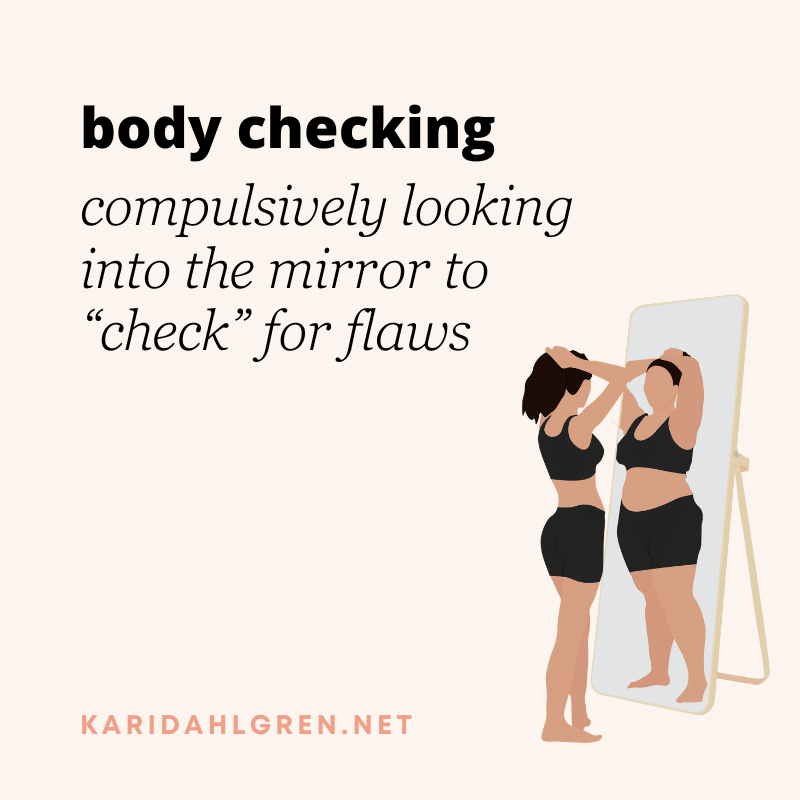
Body checking is a habitual behavior where individuals frequently examine, measure, or scrutinize parts of their bodies, often in mirrors or reflective surfaces. Overcoming body checking can be a slow process because it can become a deeply ingrained habit, especially in the context of self-critical comments such as, “I hate my body.”
The concept of neuroplasticity, the brain’s ability to reorganize itself by forming new neural connections, is key to understanding how to overcome body checking. The brain adapts to frequently practiced tasks, which means that body-checkers have trained their brain to look for flaws.
To unravel the body checking habit, start by bringing curiosity towards the urge to check yourself in the mirror. Then, try to sit with the urge instead of checking yourself in the mirror—and set a small goal of resisting the body check just once a day. I recommend using a situation that routinely happens every day, such as looking in the mirror after getting dressed. Try to limit body checking to just one look in the mirror and resist checking after that.
Because body checking is compulsive, it will likely be hard to resist, so keep the goal small to make it accessible. Resisting the urge to body check just once can make a long-term impact when practiced over time. For more help with compulsions like body checking, see my other article on urge surfing.
2. Practice Body Neutrality Before Body Positivity
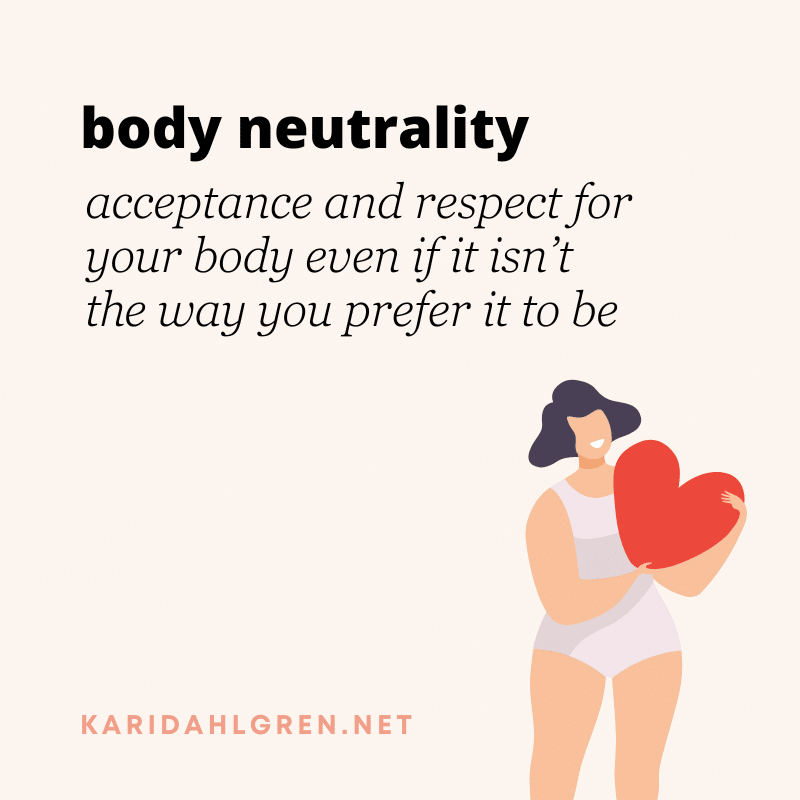
Focusing on body neutrality before body positivity is crucial for individuals grappling with deep-seated body image issues. Body positivity, which promotes the acceptance and celebration of all body types, can feel out of reach for those who are struggling with thoughts like “I hate my body.” In contrast, body neutrality emphasizes a more neutral, less emotionally charged perspective towards one’s body, which can be a more attainable first step.
One way to put body neutrality into practice is to practice food neutrality, or viewing all foods as equal. Instead of labelling foods as “good” and “bad” try to view them neutrally and eat the foods that appeal to you when you’re hungry. Studies have shown that having a fearful response to certain foods is associated with body dissatisfaction.[18] By working towards food neutrality, it may have a spill-over effect and contribute to body neutrality as well.
By training your brain to become less critical of your food choices, it may help train your brain to be less critical of your body, too.
3. Practice Intuitive Eating Over Dieting
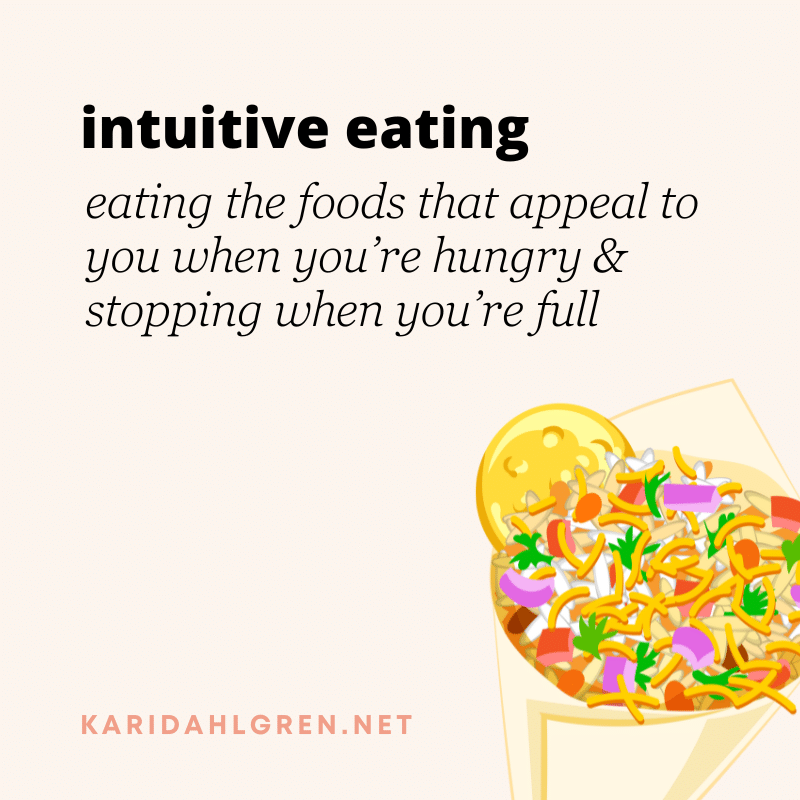
Dieting often reinforces poor body image because it sets up a cycle of restriction and rebellion. When we impose strict dietary rules on ourselves, our bodies are wired to resist, leading to overeating or a pattern of short-term weight loss followed by long-term weight regain.[19], [20] These experiences can further erode self-esteem, as they reinforce the idea that we are failing to control our bodies or achieve an idealized standard.
Instead of perpetuating this cycle through dieting, a more constructive approach is to practice intuitive eating, which is associated with better body satisfaction than dieting.[21] Intuitive eating involves turning inward and listening to your body’s cues—such as hunger, fullness, and satisfaction—rather than adhering to external rules about what, when, and how much to eat. By honoring your body’s natural signals, you can break free from the cycle of restriction and self-critical thoughts like “I hate my body.”
Intuitive eating helps retrain the brain away from self-criticism and towards self-inquiry. Rather than judging yourself for your food choices or body shape, you learn to approach eating with curiosity and kindness. This shift in mindset can naturally pave the way towards better body image, as it encourages a more compassionate and accepting relationship with your body.
4. Protect Your Boundaries Around Body Comments
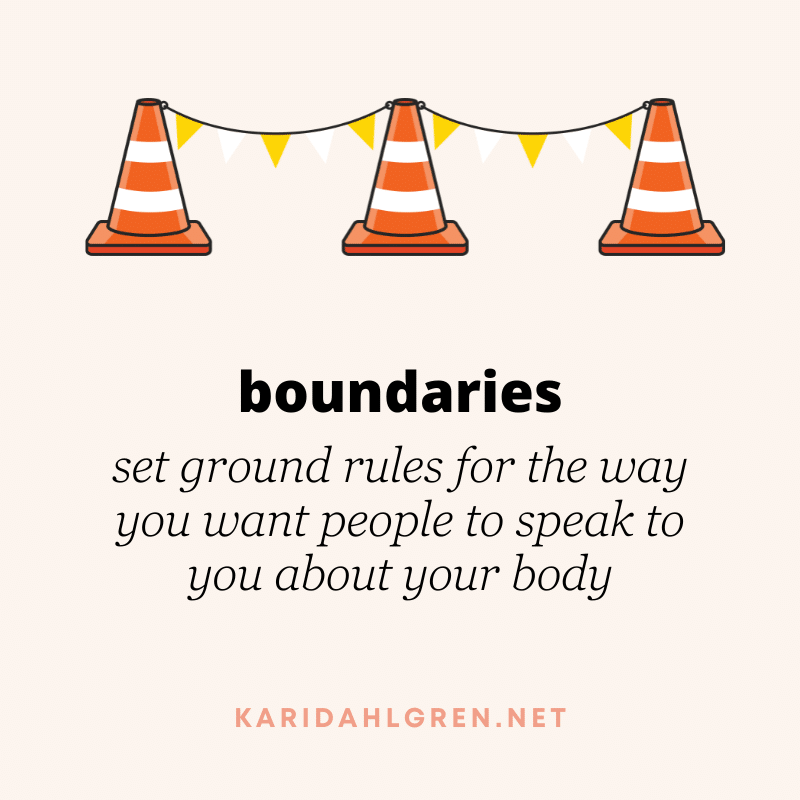
Protecting your boundaries around body shaming comments is crucial for maintaining a positive body image. When friends or family members make remarks about your weight or appearance, it’s important to assertively communicate your boundaries to discourage such comments in the future.
Here are some examples of what to say when someone comments on your weight:
- “I am sure you have good intentions, but I prefer not to discuss my weight.”
- “I’m focusing on my health and well-being rather than my weight, and I’d appreciate it if we could talk about something else.”
- “I find comments about my body unhelpful and hurtful. Let’s focus on other topics.”
By setting these boundaries, you’re not only protecting your own mental health but also challenging the normalization of body shaming in your social circle. This can have a positive impact on your body image by reducing the frequency of negative comments that might trigger thoughts like, “I hate my body.”
Standing up for yourself also sends a message to others that body shaming is not acceptable, which can contribute to a more supportive and respectful environment for everyone.
5. Transform Your Self-Care Routine
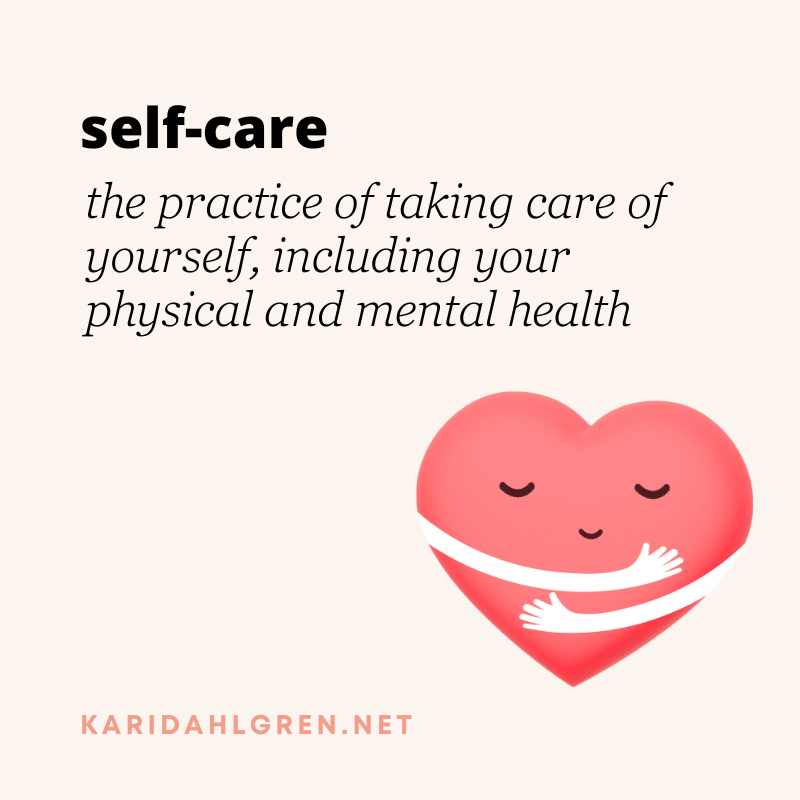
Transforming your self-care routine is a powerful way to improve body satisfaction and combat the self-critical thought of “I hate my body.” By incorporating practices that promote relaxation, gratitude, and appreciation for your body’s capabilities, you can foster a more positive relationship with yourself.
Here are some self-care tips that can help enhance body satisfaction:
- Reduce Stress: Stress is associated with poor body image.[22] Engaging in activities that lower stress—such as meditation, yoga, or deep breathing exercises—can help promote a state of relaxation, creating a conducive environment for a more peaceful relationship with your body to develop..
- Practice Body Gratitude: Take a few moments each day to thank your body for what it does for you, whether it’s allowing you to enjoy a walk in the park or giving you the strength to carry groceries. Repeating this self-care ritual daily can help train your brain to look for positives instead of flaws.
- Focus on What Your Body Can Do: Instead of fixating on appearance, celebrate the functional aspects of your body, like its ability to heal, move, and experience sensations. This, too, can help train your brain to focus on self-appreciation instead of self-criticism.
As someone that has once been in the trenches of self-loathing, I know how inaccessible some of these tips can sound. If you struggle with hating your body, you might not believe anything you write down in your body gratitude journal. Still, I encourage you to give it a try, because even if your brain isn’t on board with body appreciation yet, repetition can help you get there.
Healing Your Relationship with Yourself
As someone that personally knows how heavy the thought “I hate my body” feels, I can also attest to the power of shifting your focus away from food entirely. Although there are many factors that diminish body image, excessive dieting and striving towards an unattainable thin ideal are at the top of the list.
When I finally gave up dieting and started listening to my body instead, that’s when my relationship with my body finally improved. The way I related to food—no longer demonizing it and no longer criticizing what I ate—trickled over into my relationship with my body, where I finally stopped hating it and criticizing it.
If you want a step-by-step guide to healing your relationship with food and body image, I highly recommend signing up for my free ebook and 5-day email course below. They expand on all these topics in even greater detail.


